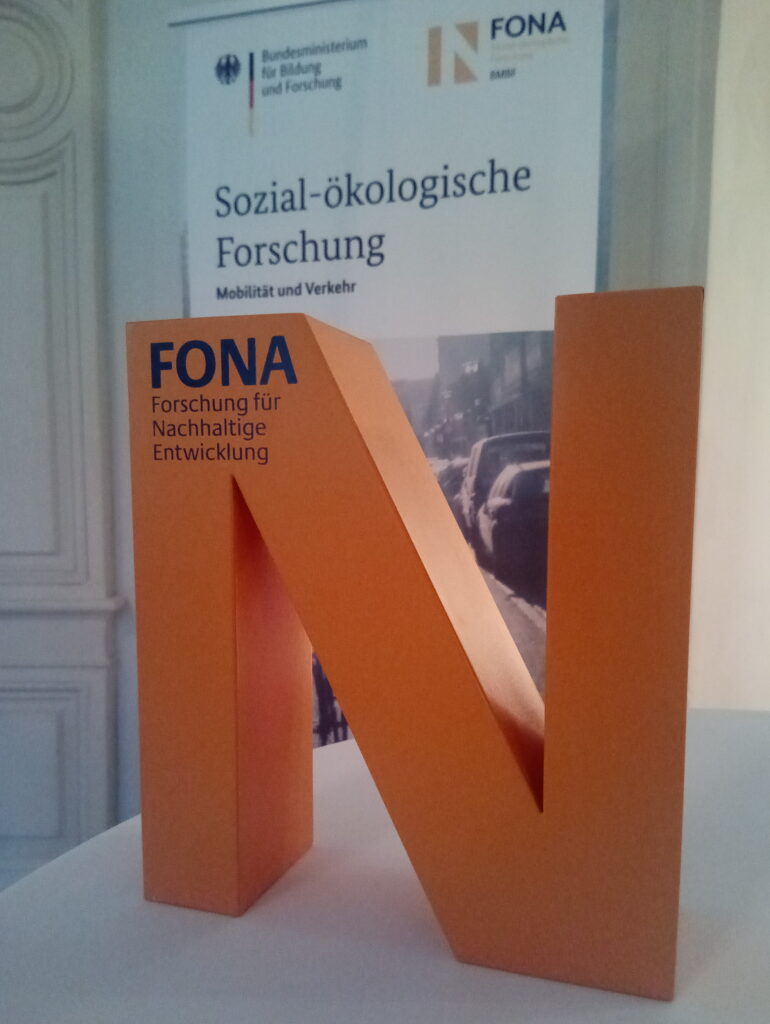Our interest
The overarching aim of the research group CIMT (Citizen Involvement in Mobility Transitions) is to understand under what conditions citizen participation can contribute to sustainable development, thus addressing the question of the governance of the transformation to a more sustainable society.

The focus is on local participation processes in the context of the mobility turn. The topic of mobility exemplifies the challenges associated with a transformation towards a more sustainable society because despite strong gains in energy efficiency, carbon emissions from traffic have remained on the same high level for the last 25 years. What is more, the necessary measures are met with individual resistance as sustainable means of mobility require various changes in individual behaviour.
Our aims
The project, which has been funded by the Federal Ministry of Education and Research (BMBF) since 2019, aims to develop an understanding of how and under what conditions citizen participation can contribute to sustainable development. Specifically, the group is pursuing three main areas of research:
- Firstly, the project analyses the conditions under which municipalities can improve the quality of political decisions by involving citizens, particularly with regard to the sustainability of the solutions found.
- Secondly, the aim is to find out whether such consultations in planning and decision-making processes can increase public acceptance of such measures.
- Thirdly, the group is interested in developing (partially) automated analysis methods to support the evaluation of contributions in participation processes.
To address this issue, the Social Sciences are conducting research together with Urban and Spatial Planning as well as Computer Science. The research follows on from the work of Assistant Professor Dr Tobias Escher, who has been evaluating participation processes for more than ten years, particularly in connection with online participation.
As social-ecological researchers it is our aim to make the knowledge that is created through our research accessible to support the transformation towards greater sustainability. To this end we collaborate closely with those practitioners who shape the mobility transformation and implement the necessary planning procedures. If you are interested in collaborating with us, please do get in touch.
Our knowledge is informing guidelines that help municipalities to purposefully design participation processes on the ground. In addition we provide tools to research and practice that support the analysis of citizen contributions.
Our research approach
To address these questions we combine the expertise of Social Sciences, Urban Planning and Computer Science (more on our team). Among our collaborators are municipalities, participation consultancies and NGOs (see collaboration).
We rely on representative surveys of local communities, content analyses of citizen contributions (both manual and automated) as well as stakeholder interviews.
| Case Study | Elbchaussee (Planungs-abschnitt West) | freiRaum Ottensen | MoVe35 | Masterplan Verkehr OG 2035 | Städte-bauliche Verkehrs-untersuchung Hecking-hausen |
| city | Hamburg | Hamburg | Marburg | Offenburg | Wuppertal |
| plan | object planning | concept for car-reduced district | mobility and transport concept | transport masterplan | concept to redistribute street space |
| scale | suburban | suburban | city-wide | city-wide | suburban |
| time frame | 2019 – 2021 | 2021 – 2022 (2024) | 2020 – 2023 | 2021 – (2023) | 2020 – 2022/23 |
| participation formats | online dialogues, workshops | online dialogues, workshops, focus groups, advisory board | online survey, advisory board, local advisory committees | online dialogues, workshops, local town halls, youth participation | kick-off event, online survey |
This approach is supplemented by the creation of a database of relevant participation processes conducted in German municipalities.
Our funders

In spring 2019 the research group was set up as a Junior Research Group in Social-ecological Research supported by the Federal Ministry of Education and Research within the programme “Social-Ecological Research” (FONA). We are based at the Department of Social Sciences at Heinrich Heine University Düsseldorf. The project further benefits from its cooperation with the Düsseldorf Institute for Internet and Democracy of Heinrich-Heine-University, that has in particular funded the research that has led to this project.

